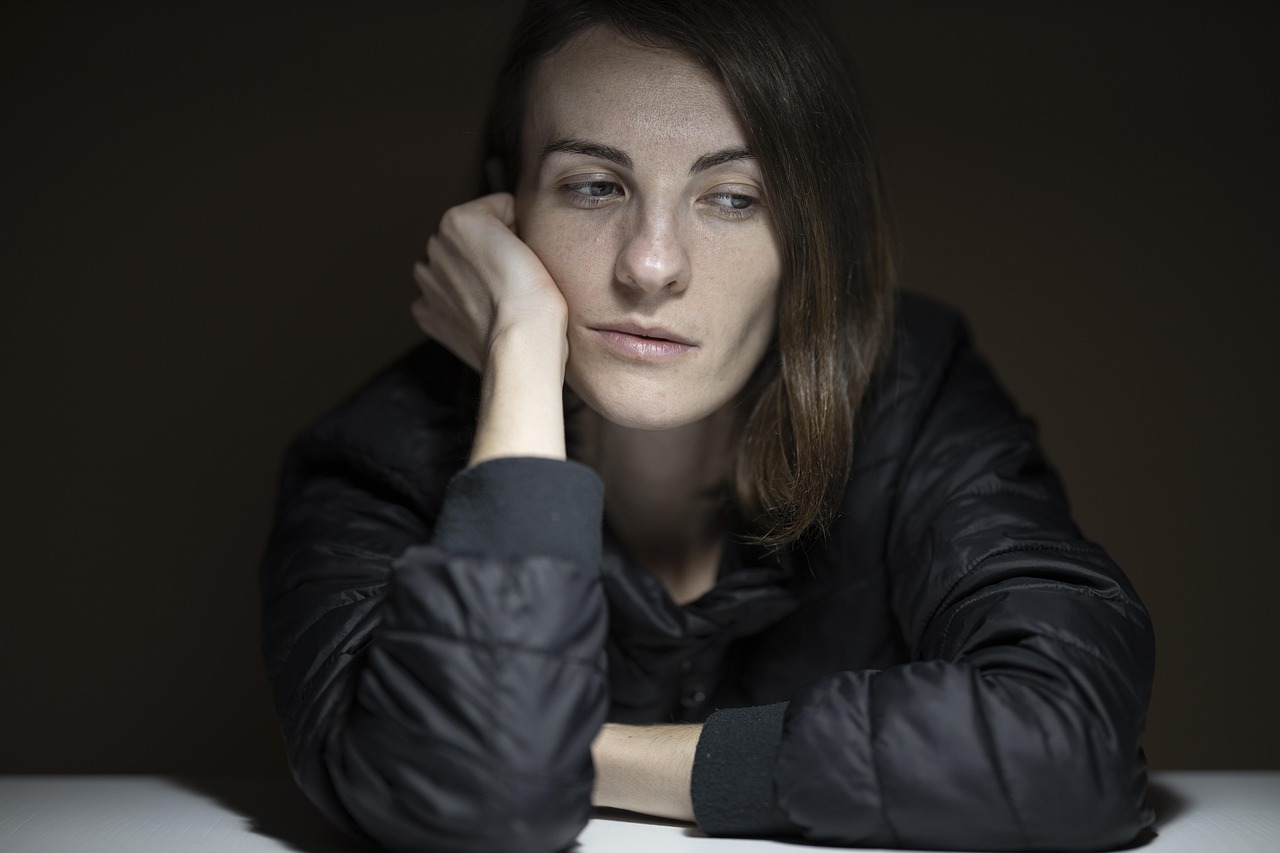
Image by Engin Akyurt from Pixabay
Understanding Depression in Women
Depression is one of the most common mental health challenges worldwide, but it often affects women in ways that are unique from men. Biological differences, social pressures, hormonal fluctuations, and life stage changes can make women more vulnerable to certain types of depression – and can also shape how symptoms appear and how they are treated.
Understanding the common triggers, symptoms, and treatment options for depression in women is crucial for early intervention and recovery. With the right care and support, women can manage their symptoms, address root causes, and regain control over their emotional well-being.
Why Depression Affects Women Differently
While both men and women can experience depression, research shows that women are nearly twice as likely to be diagnosed with the condition. Several factors contribute to this difference:
- Hormonal Changes – Fluctuations in estrogen and progesterone during the menstrual cycle, pregnancy, postpartum period, and menopause can influence mood regulation.
- Societal Expectations – Pressure to balance career, family, and personal identity can lead to emotional strain.
- Life Stressors – Women are statistically more likely to experience sexual abuse, domestic violence, and certain caregiving responsibilities, all of which can contribute to depression.
Recognizing these influences is essential for tailoring effective prevention and treatment strategies.
Common Triggers of Depression in Women
The triggers for depression can vary widely, but some are particularly common among women:
1. Hormonal Fluctuations
Menstrual cycle changes, pregnancy, postpartum adjustments, and menopause can all contribute to mood instability.
2. Relationship and Family Stress
Marital conflict, divorce, or the emotional demands of parenting can weigh heavily on women’s mental health.
3. Workplace Challenges
Gender bias, wage inequality, and career burnout can create chronic stress that increases the risk of depression.
4. Life Transitions
Milestones such as becoming an empty nester, adjusting to aging parents, or navigating midlife changes can trigger depressive episodes.
5. Trauma and Abuse
A history of physical, emotional, or sexual abuse significantly raises the likelihood of developing depression.

Image by Nick_the_Photographer from Pixabay
Symptoms of Depression in Women
Depression symptoms can look different from one person to another, but common signs in women include:
- Emotional Signs: Persistent sadness, irritability, guilt, or hopelessness.
- Cognitive Signs: Difficulty concentrating, indecisiveness, and negative thought patterns.
- Physical Signs: Chronic fatigue, changes in sleep patterns, and appetite fluctuations.
- Behavioral Signs: Withdrawal from friends and family, neglect of personal responsibilities, and loss of interest in activities once enjoyed.
Women may also experience atypical depression, where symptoms like increased appetite, weight gain, and oversleeping are more prevalent.
How to Recognize When It’s More Than “Just Stress”
It’s normal to have occasional periods of low mood or anxiety, but depression is more than just temporary sadness or stress. Key differences include:
- Duration: Symptoms last for two weeks or longer.
- Severity: Mood changes significantly interfere with daily life.
- Impact: Work performance, relationships, and self-care are affected.
When these signs are present, it’s important to seek a professional evaluation rather than trying to “push through” on one’s own.
Professional Treatment Options for Women
Effective treatment for depression in women often requires a multi-faceted approach that addresses both biological and emotional needs.
A. Therapy and Counseling Approaches
- Cognitive Behavioral Therapy (CBT): Focuses on identifying and changing negative thought patterns that contribute to depression.
- Interpersonal Therapy (IPT): Targets communication issues and relationship stress, helping women navigate conflicts and life changes.
- Trauma-Informed Therapy: Provides a safe space to address the lingering effects of past abuse or trauma.
- Group Therapy: Offers peer support and a sense of shared understanding among women with similar experiences.
- Family Therapy: Involves loved ones to improve family dynamics and support systems.
B. Medication Considerations
- Antidepressants: Selective serotonin reuptake inhibitors (SSRIs) such as online Lexapro (escitalopram) prescription services make it easier for women to start or adjust medication without the barriers of in-person visits.
- Remeron (Mirtazapine): For those needing additional sleep support or appetite regulation, an online Remeron (mirtazapine) prescription can be considered under a healthcare provider’s supervision.
- Hormonal Considerations: Hormone changes related to the menstrual cycle or menopause may influence how medications work.
- Pregnancy and Breastfeeding Safety: Certain medications are safer during pregnancy and lactation, and treatment plans must consider these factors.
- Medication Management: Regular consultations with a healthcare provider ensure optimal dosing and minimal side effects.

Image by Sasin Tipchai from Pixabay
C. Specialized Treatment Programs
- Perinatal Mental Health Services: Tailored support for women during pregnancy and the postpartum period.
- Women’s Mental Health Clinics: Gender-specific treatment that addresses the unique challenges women face.
- Intensive Outpatient Programs (IOPs): Structured therapy and support while allowing women to maintain work or family responsibilities.
- Residential Treatment: Full-time care for severe or treatment-resistant depression.
- TMS Therapy: For women who haven’t responded well to medication, finding a TMS treatment physician for depression near you can open up non-invasive, FDA-approved treatment options.
D. Integrative and Complementary Approaches
- Mindfulness and Meditation: Reduces stress, improves self-awareness, and fosters emotional regulation.
- Exercise Therapy: Physical activity boosts endorphins and supports overall mood improvement.
- Nutritional Counseling: Addresses the impact of diet on mood and energy levels.
- Acupuncture and Massage: May complement traditional treatment by reducing tension and promoting relaxation.
The Role of Loved Ones in Supporting Women with Depression
Support from family and friends can make a significant difference in recovery. Loved ones can help by:
- Listening without judgment.
- Encouraging professional help when symptoms are evident.
- Being patient and understanding that recovery takes time.
- Avoiding dismissive phrases like “snap out of it” or “just think positive.”
A strong, compassionate support network can help women feel less isolated and more motivated to continue treatment.
When to Seek Immediate Help
In some cases, depression can become severe and lead to thoughts of self-harm or suicide. Warning signs may include:
- Expressing hopelessness or feeling like a burden.
- Withdrawing from all social contact.
- Talking about death or self-harm.
- Sudden mood improvement after a long period of depression (which can sometimes indicate a decision to attempt suicide).
If these signs are present, it’s essential to seek immediate help by contacting a crisis hotline (such as 988), calling emergency services, or going to the nearest emergency department.
Hope and Help for Women Living with Depression
Depression in women is complex, influenced by a combination of biological, emotional, and environmental factors. Recognizing the triggers and symptoms is the first step toward getting help. With access to professional treatment – including therapy, medication, specialized programs, and holistic approaches – recovery is not only possible but highly achievable.
No woman should face depression alone. Klinic offers compassionate, confidential, and comprehensive mental health services tailored to women’s unique needs. With the right guidance, women can navigate their journey toward healing, resilience, and long-term emotional wellness.

Image by Muhammad Haseeb Muhammad Suleman from Pixabay